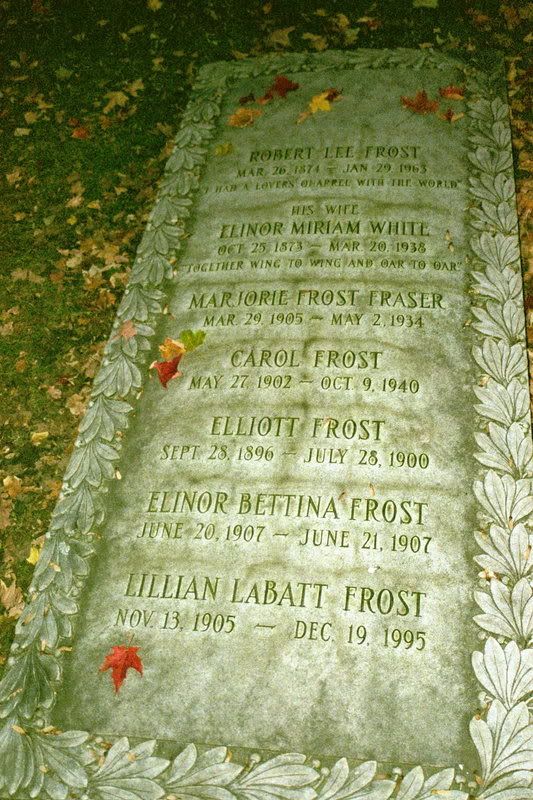Forum Replies Created
-
AuthorPosts
-
 StumpfootParticipant
StumpfootParticipantI'm never read the Koran either. But Phid makes a good point. There are people in this world who can take a good thing and turn it into a nightmare for the rest of us.
 StumpfootParticipant
StumpfootParticipantHere it is. It was taken late in the evening. The grave is located towards the back of the cemetery.

 StumpfootParticipant
StumpfootParticipantI think I have Finally broke even. 😀
 StumpfootParticipant
StumpfootParticipantAnd dont some think that they ultimately became the Philistines as well. My knowledge on this subject is limited, but it is very interesting.
 StumpfootParticipant
StumpfootParticipantIn another class are leaders who, as you suggest, are "desirous of lifting his fellow man...into a better position in life". Perhaps a person like Che Guevara - whether one disagrees with him or not - falls into this category. Is this the kind of person you were thinking of?
I sit on the fence when it comes to Che Guevara. He didn't seem to me to be desirous of power. He wanted change. However his extremely violent approach to getting that change I disagree with. It was said that he wished to spread socialism all over Latin America and start WW3. A little too aggressive for my taste.
 StumpfootParticipant
StumpfootParticipant1776 : Congress publishes the Tory ActThe Continental Congress publishes the ?Tory Act? resolution on this day in 1776, which describes how colonies should handle those Americans who remain loyal to the British and King George. The act called on colonial committees to indoctrinate those "honest and well-meaning, but uninformed people" by enlightening them as to the "origin, nature and extent of the present controversy.? The Congress remained ?fully persuaded that the more our right to the enjoyment of our ancient liberties and privileges is examined, the more just and necessary our present opposition to ministerial tyranny will appear.? However, those ?unworthy Americans,? who had ?taken part with our oppressors? with the aim of gathering ?ignominious rewards,? were left to the relevant bodies, some ominously named ?councils of safety,? to decide their fate. Congress merely offered its ?opinion? that dedicated Tories ?ought to be disarmed, and the more dangerous among them either kept in safe custody, or bound with sufficient sureties to their good behavior.? The lengths Congress and lesser colonial bodies would go to in order to repress Loyalists took a darker tone later in the act. Listing examples of the ?execrable barbarity with which this unhappy war has been conducted on the part of our enemies,? Congress vowed to act ?whenever retaliation may be necessary? although it might prove a ?disagreeable task.? In the face of such hostility, some Loyalists chose not to remain in the American colonies. During the war, between 60,000 and 70,000 free persons and 20,000 slaves abandoned the rebellious 13 colonies for other destinations within the British empire. The Revolution effectively created two countries: Patriots formed the new United States, while fleeing Loyalists populated Canada.
 StumpfootParticipant
StumpfootParticipantMaybe we would have more of a Greek influence.
 StumpfootParticipant
StumpfootParticipantNo. The Axis powers would have won the war as soon as either Britain or Russia capitulated.
I believe that would have been Britain, Russia was giving Hitler to much trouble for it to collapse before England.
 StumpfootParticipant
StumpfootParticipantWhat would todays world be like without Rome?
 StumpfootParticipant
StumpfootParticipantWould victory in Europe hae been possible in WW2 without U.S. involvment?
 StumpfootParticipant
StumpfootParticipantThis is my top ten,but not in any particular order;1.Lincoln2.Hitler3.Marx4.Napoleon5.Edison6.Stalin7.FDR8.Churchill9.Martin Luther10.Thomas Jefferson
 StumpfootParticipant
StumpfootParticipantI read John Adams Bio and it talked about how young people in those days were going to Harvard at 15.
 StumpfootParticipant
StumpfootParticipantU571. In the movie they have the U.S. going after the German u-boat when it was actually the British.
 StumpfootParticipant
StumpfootParticipantJan 1, 1863 : The Emancipation Proclamation takes effectPresident Lincoln signs the final Emancipation Proclamation, which ends slavery in the rebelling states. A preliminary proclamation was issued in September, following the Union victory at the Battle of Antietam, Maryland. The act signaled an important shift in the Union's war aims, changing the goal of the war from reunification to the eradication of slavery.
 StumpfootParticipant
StumpfootParticipantHere are some of the search phrases which brought visitors to WCF for the month of December 2006 (from more frequent to less frequent): hobilar
Hobilar? Isnt he a Member. Funny there should be searches for him sending folks here.
-
AuthorPosts



